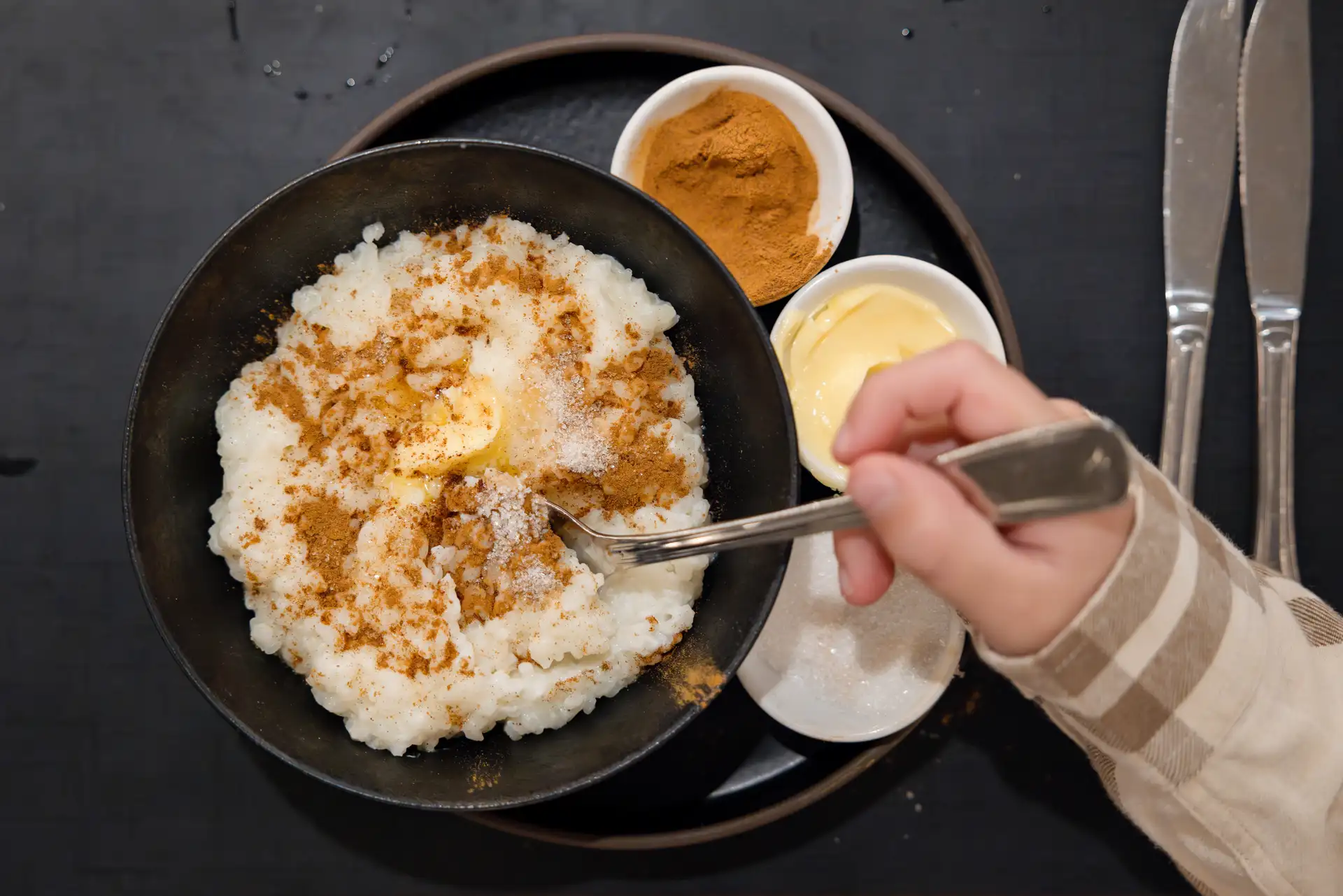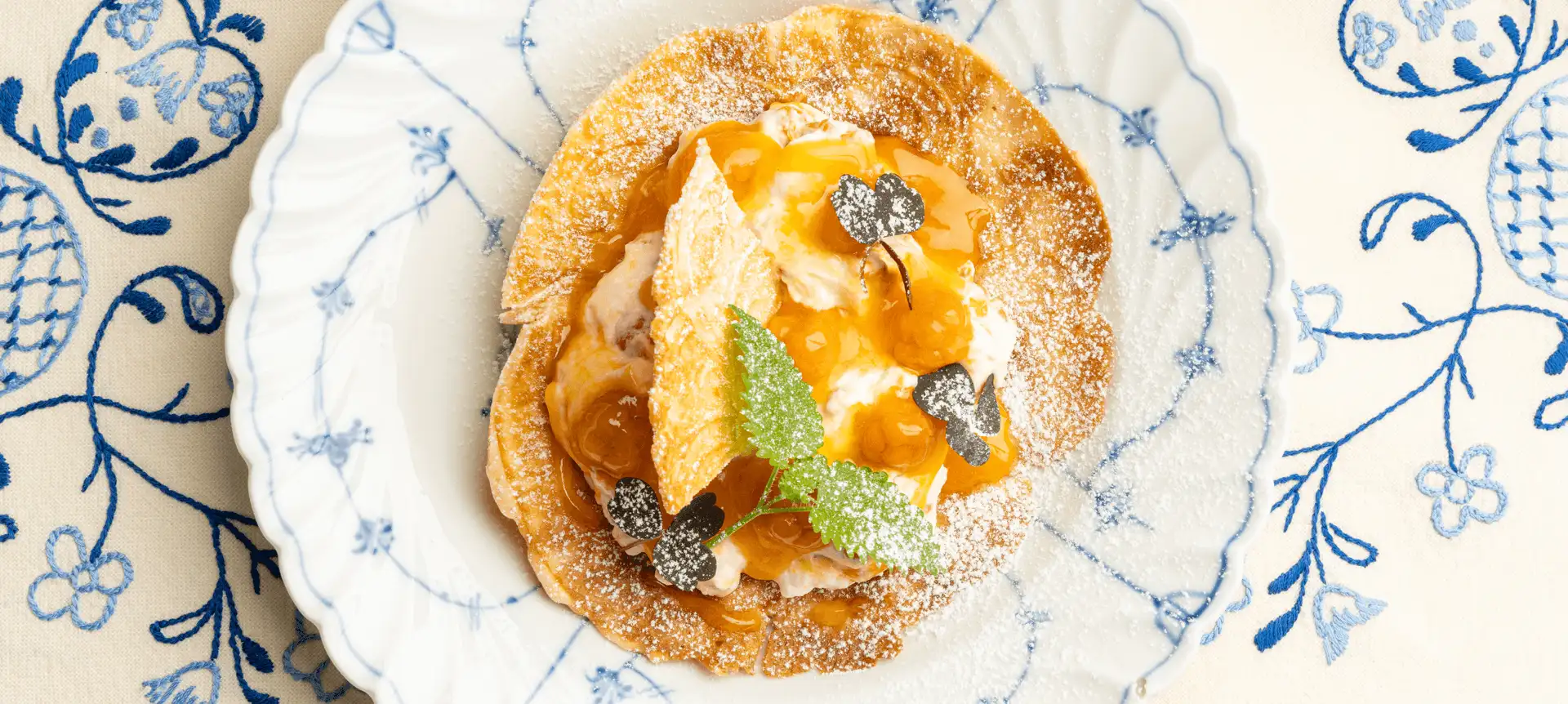Christmas food in Norway
From lamb ribs to sweet Christmas cookies — taste the flavours that make a Norwegian Christmas truly special.

Christmas in Norway is about family, tradition, and food. It’s a time to gather your favourite people around delicious Norwegian Christmas dishes such as ribbe (pork belly), pinnekjøtt (lamb ribs), and sweet Christmas cookies, creating welcome pools of warmth and light in the cold and dark of winter.
When you cruise with us during the holiday season, our small ships do more than bring you close to Norway’s magical snow-dusted mountains and fjords. We draw you deep into the stories and cultures on which our Norwegian Christmas traditions are built. And an important part of that experience is sharing the food and drink of a truly Norwegian Christmas.
Generations of Christmas food in Norway
For many of us Norwegians, Christmas tastes and smells like our childhood home. It’s in the dishes our grandparents and parents made – the same ones we still bring to Christmas dinner, year after year.
In most families, there’s that one recipe – perhaps for ribbe or pinnekjøtt or Norwegian Christmas sweets – that no one dares change. We make it the way it’s always been made, because sharing Christmas traditions is a way to keep our family close.
The spices of Christmas – cinnamon, cardamom, cloves and anise – do more than scent the house. They carry our memories. When they fill the air, it’s like the past reaches out and gives us a hug. We’re kids again, wide-eyed at the kitchen bench, but now, maybe we’re the ones stirring the pot, passing on the memories.
That’s what Norwegian Christmas food is for – people coming together around what matters, building on traditions that have been ours for generations. It also happens to taste great!
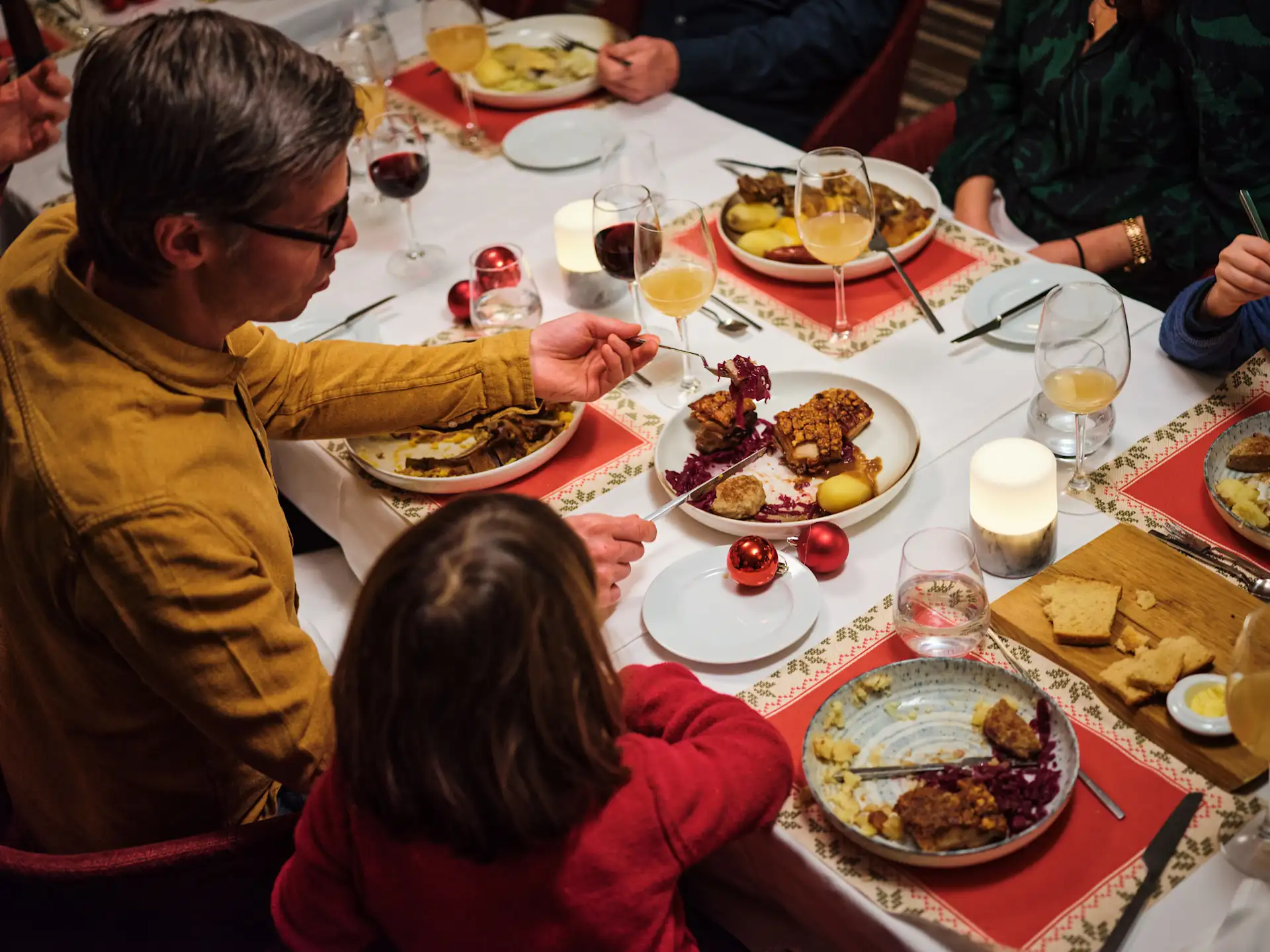
Norwegian Christmas traditions: rituals and recipes
For many of us Norwegians, Christmas is the best holiday of the year, a fascinating mix of pagan celebrations of the winter solstice and Christian rituals.
Traditionally, Christmas truly begins on lille julaften (Little Christmas Eve) – 23 December – when the Christmas tree is decorated, and the last preparations are made before the holiday starts.
Nowadays, Christmas markets appear in towns and villages across the country from as early as the end of November, so you can visit and experience a Norwegian Christmas any time from then.
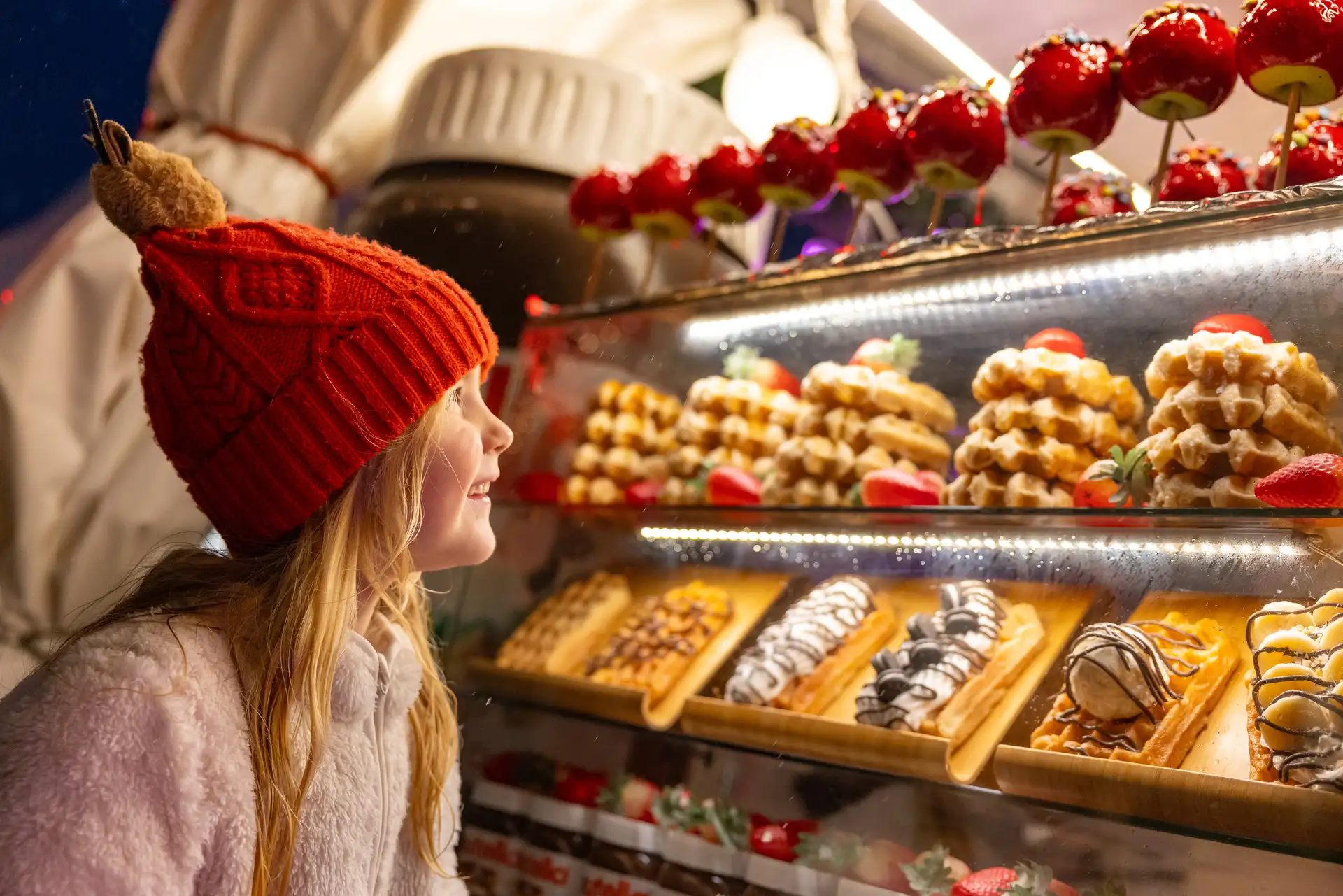
Most of us think of Julaften (Christmas Eve) – 24 December – as the highlight of Christmas. We eat risgrøt (rice porridge) with sugar, cinnamon and a pat of butter for lunch, often with an almond hidden inside. The person who finds the almond wins a marzipan pig or another treat as a prize.
At five o’clock, Christmas is 'rung in', and many Norwegians go to church before the family gathers around the table to eat Christmas dinner together.
We usually spend the first few days of Christmas visiting relatives and friends, gathering around tables laden with a generous buffet of Christmas dinner leftovers and sides such as julesild (Christmas herring), juleskinke (Christmas ham), cured meats, sylte (pork terrine), lefse (a Norwegian potato flatbread) and salads.
Then comes romjul (the days between Christmas and New Year’s Eve) when we slow down and soak up the koselig – a unique Norwegian concept of cosiness with a deep sense of belonging and peacefulness – until the next big celebration, nyttårsaften (New Year’s Eve).
What’s on the Christmas dinner table in Norway?
There’s far more to Christmas food in Norway than its flavour. What we choose to eat and drink at this time of year tells a well-seasoned story about our country’s natural larder, how we have adapted to Norway’s long winters, and even which part of Norway we live in or grew up in.
Traditionally, Norwegians in the north always had good access to fish, so that has always filled plates at Christmastime there. On the west coast, lamb and mutton were more common, while in eastern Norway, pork was typical.
The big difference between everyday meals and the dishes served up for Christmas dinner was the quality of the ingredients. Only the best produce and finest cuts of meat were used, and a variety of side dishes were added to make luxury versions for Christmas.

Today, the most typical Christmas foods in Norway are:
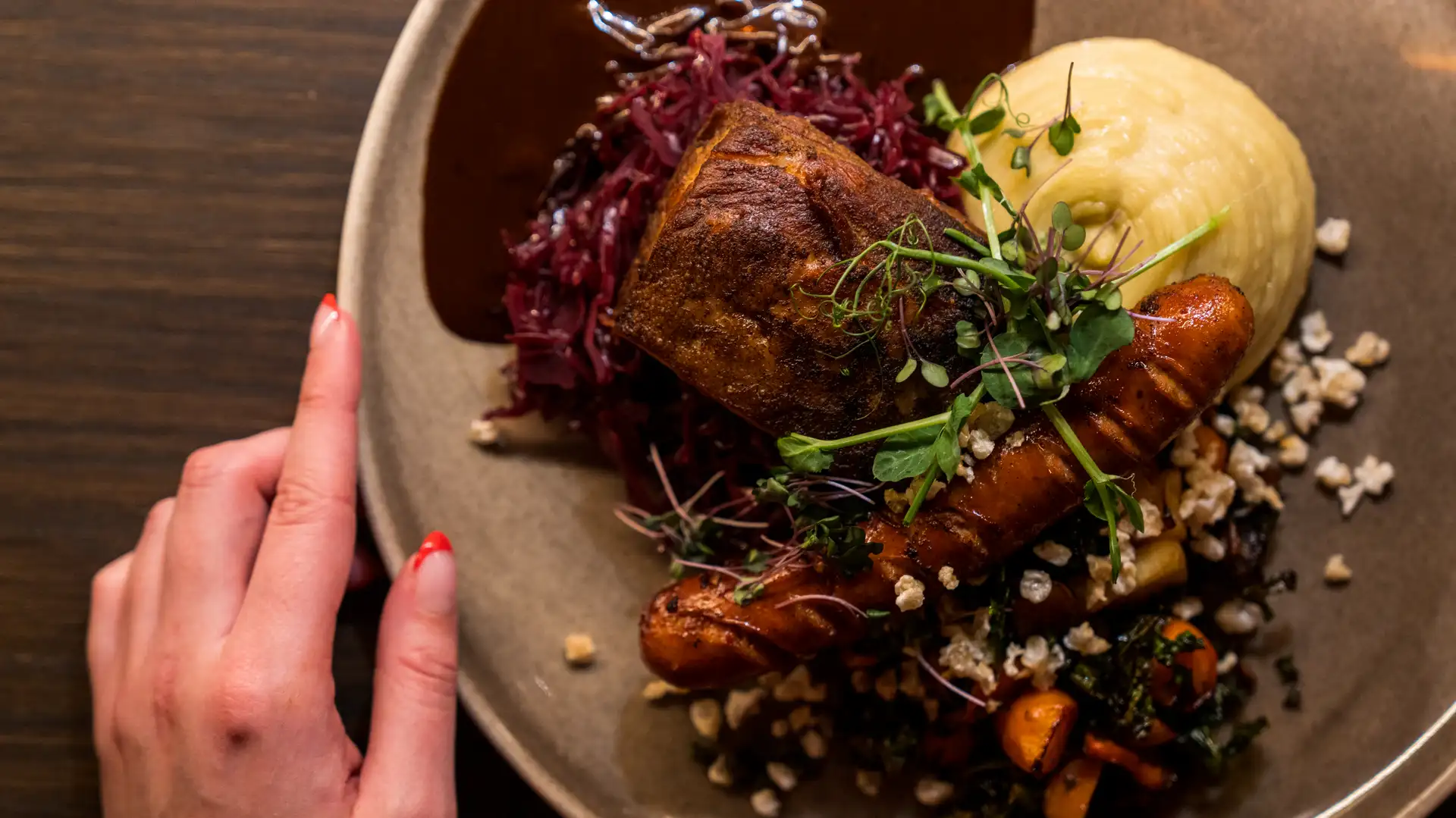
Ribbe (pork belly)
The most popular Christmas dish in eastern Norway. It is best prepared over several hours and traditionally served with medisterpølser (Christmas sausage) and medisterkaker (meatballs). Other accompaniments include sauerkraut, red cabbage, gravy, potatoes and crunchy crackling.
As it cooks, the smell of spices, fat and roasting fills the whole house. For many Norwegians, this is the very scent of Christmas.
(Image copyright: Fredrik Ahlsen - Visit Norway)

Pinnekjøtt (salted and dried lamb ribs)
The traditional dish from western Norway, the ribs are steamed until tender over birch sticks. It’s based on a preservation method – salting and drying meat to keep it through the winter – and is usually served with mashed swede and boiled potatoes.
Many don’t feel it’s really Christmas until the steam from the pots fills the house on Christmas Eve.
(Image copyright: Fredrik Ahlsen - Visit Norway)
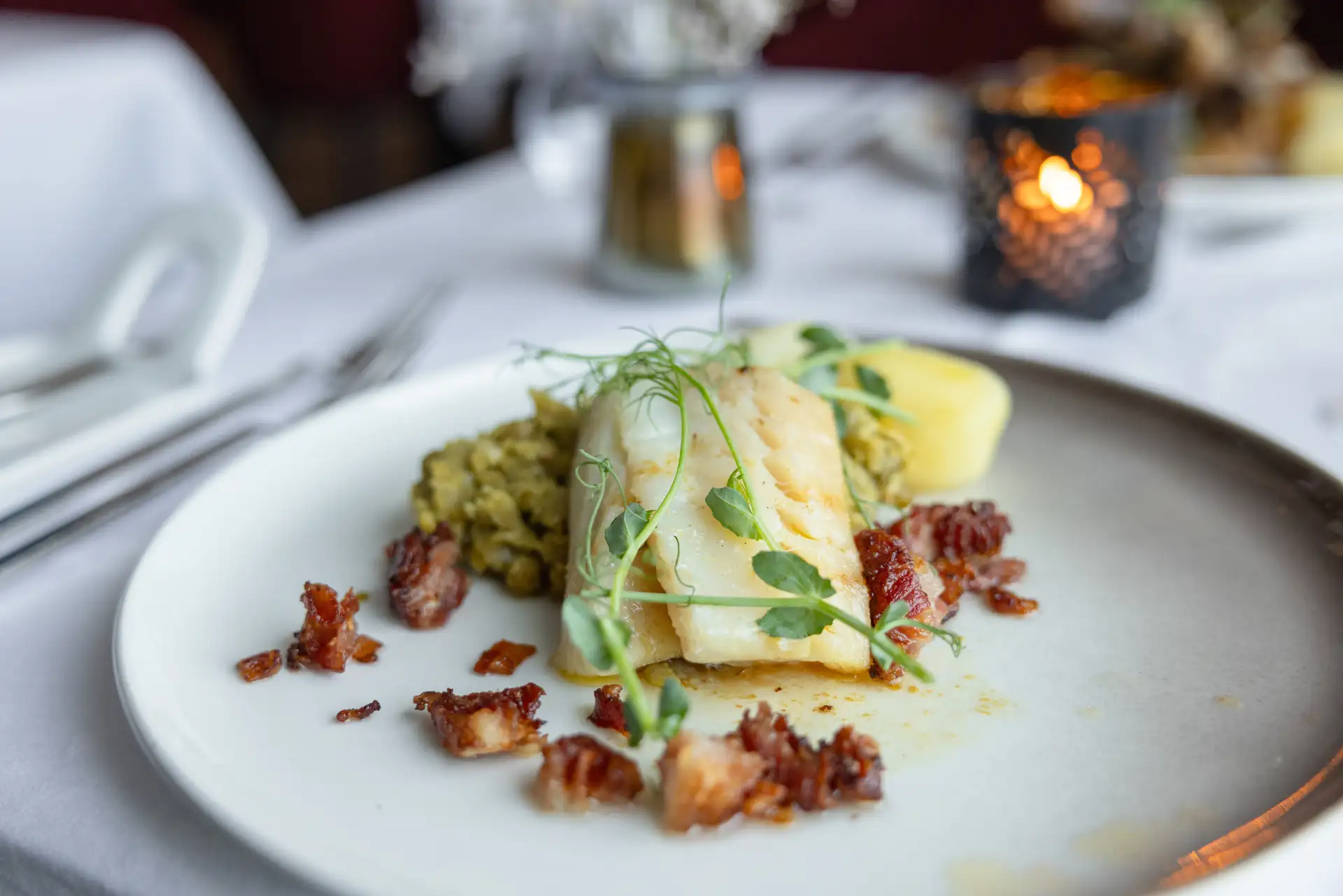
Lutefisk (dried fish)
A dish you either love or never quite understand – is another classic Christmas food in Norway. It consists of dried stockfish that has been soaked in lye and water, giving it a silky texture. It’s traditionally served with a brunost (brown cheese) sauce.
A taste of lutefisk is a true cultural experience. Don’t pass up an opportunity to give it a try!
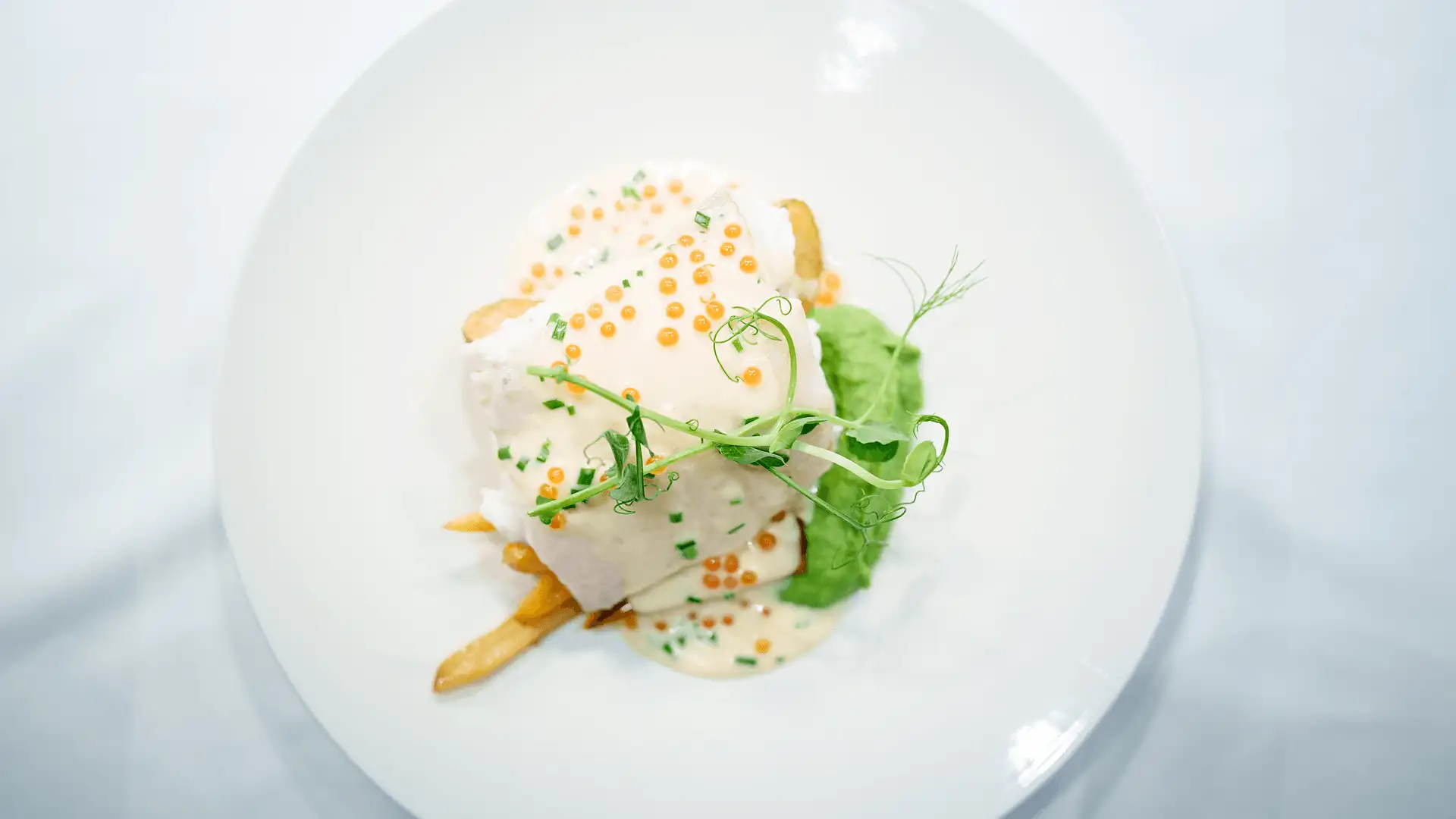
Cod and halibut
Often called juletorsk (Christmas cod) and julekveite (Christmas halibut) at this time of year – are the sea’s great contributions to the Christmas table, along with juleslid (pickled herring). In northern Norway, fresh Christmas cod is a must, served simply with carrots, butter and potatoes.
Halibut has long been considered a luxury on the festive table too, often baked or steamed and served with cucumber salad, carrots and potatoes.
(Image copyright: Fredrik Ahlsen - Visit Norway)
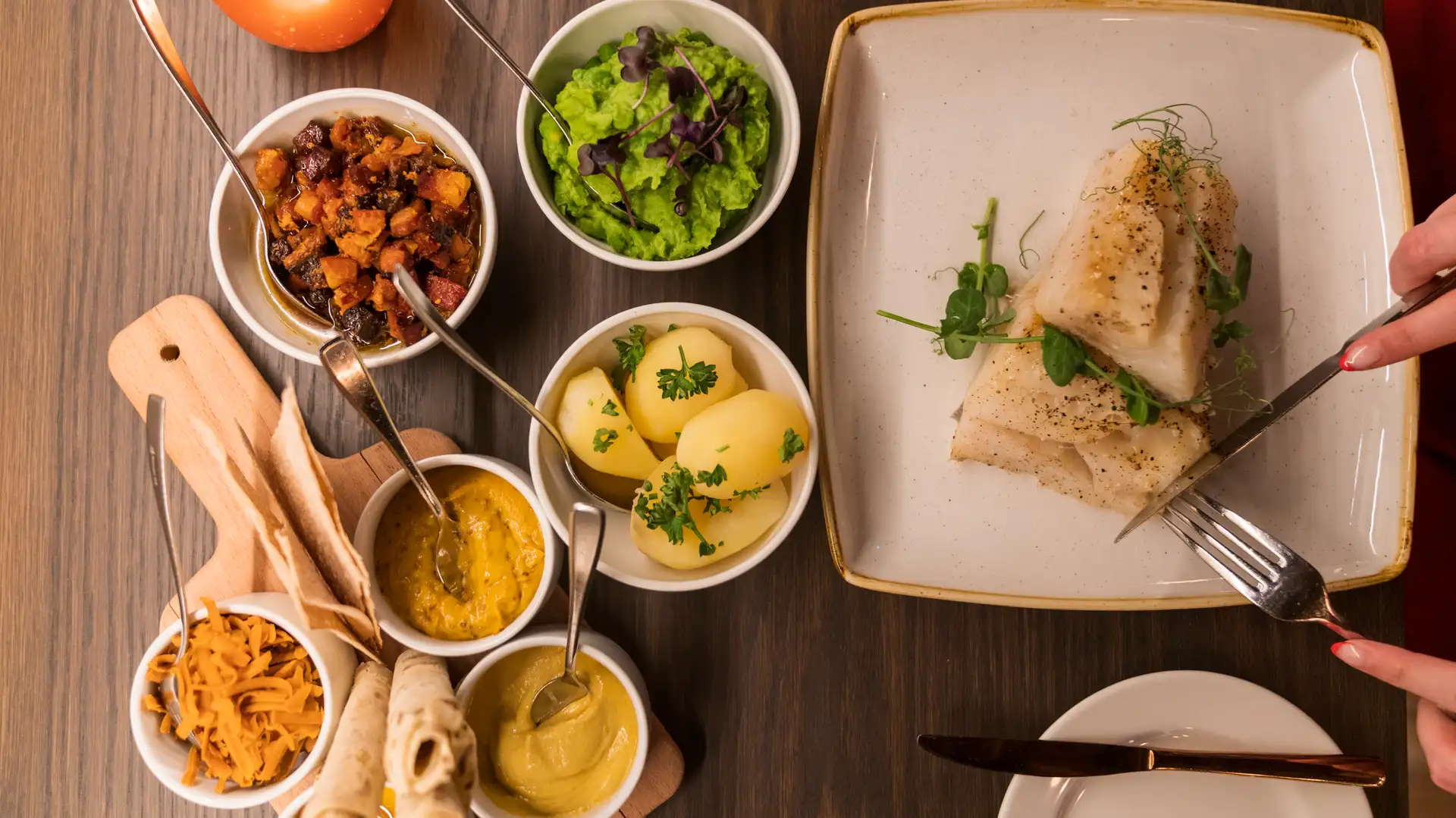
Side dishes
For many of us, these are as important to the Christmas table as the main. Typically they include mashed or boiled potatoes with sauerkraut, red cabbage, pea stew or bacon, depending on the dish.
(Image copyright: Fredrik Ahlsen - Visit Norway)
Norwegian Christmas cakes and cookies
The syv slag (seven types) of Norwegian Christmas cakes and cookies are another important part of the holiday. They’re often served with coffee after dessert on Christmas Eve and throughout romjul. They are:
pepperkaker (gingerbread)
krumkaker (thin rolled waffle cookies)
sandkaker (delicate tart-shell cookies)
berlinerkranser (buttery wreath-shaped cookies)
sirupsnipper (spiced syrup cookies, diamond-shaped)
goro (thin spiced embossed cookies, made with a patterned iron)
fattigmann (deep-fried twisted cookies, literally “poor man’s cookies”)
Many of us also have a tradition of making Christmas sweets such as small marzipan figures, homemade caramels, and chocolates to go with the coffee and cakes.
Gløgg, juleøl and julebrus: Festive drinks in Norway
What we drink at Christmas matters just as much as what we eat. Gløgg is the classic – red wine or fruit juice served warm, spiced and often with raisins and chopped almonds. It’s the smell of December in a cup.
With dinner, many of us enjoy a glass of juleøl (Christmas beer), a dark, rich brew made just for the season, alongside a small glass of aquavit.
For an alcohol-free option, there’s julebrus, a Christmas soda that comes in two camps: red or brown. Everyone has an opinion on which is better, and there’s no quicker way to spark a friendly debate. If you want to start a conversation with a Norwegian in December, just ask what colour the julebrus should be!
(Image copyright: Fredrik Ahlsen - Maverix Media AS)
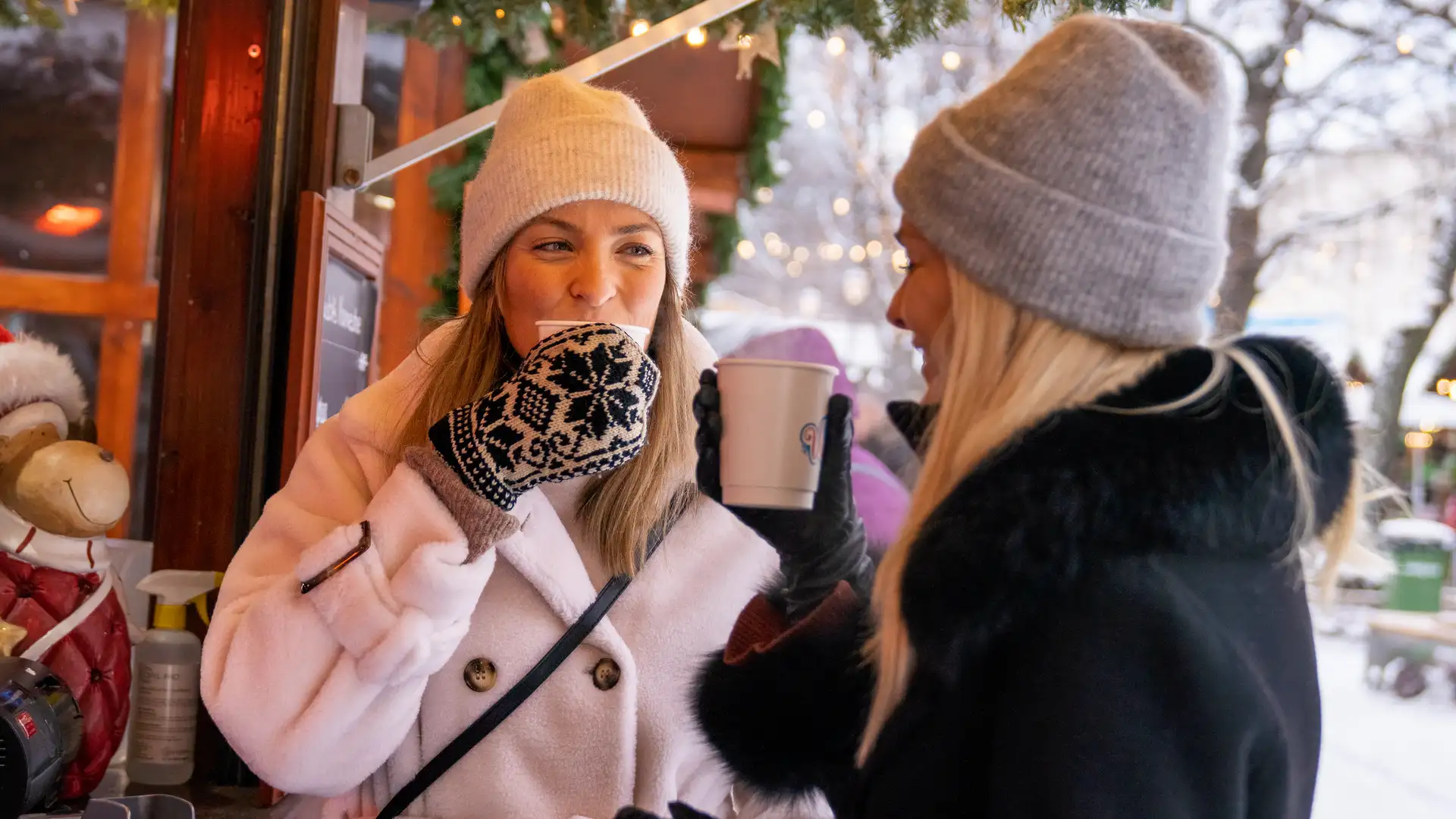
Where to experience Christmas food in Norway
You’ll find Christmas markets, streets and squares bursting with festive cheer all along the Norwegian coast. Don’t miss the chance to disembark and explore the following ports.

Bergen
Experience Pepperkakebyen, the world’s largest gingerbread city, and visit the Christmas market filled with warm holiday joy, stalls with gifts, and the aroma of hot mulled wine. Treat yourself to the taste of western Norway’s pinnekjøtt or lutefisk.

Trondheim
Trondheim’s Christmas market takes place at Torget, complete with a Ferris wheel, a giant lavvu and plenty of stalls selling crafts and local products. And how about a taste of ribbe with lingonberry jam and red cabbage, or reindeer?

Lofoten
Get a glimpse of Christmas celebrations at more intimate and traditional Christmas markets and streets, perhaps under the dancing Northern Lights. While here, you should try their Christmas cod or sample the local lutefisk.

Tromsø
Experience Christmas cheer during the blue hour and polar night with the Christmas market at the town square, and streets and shops full of festive cosiness and tasty treats. Fish is central here too, so treat yourself to a Christmas dinner of cod or lutefisk.
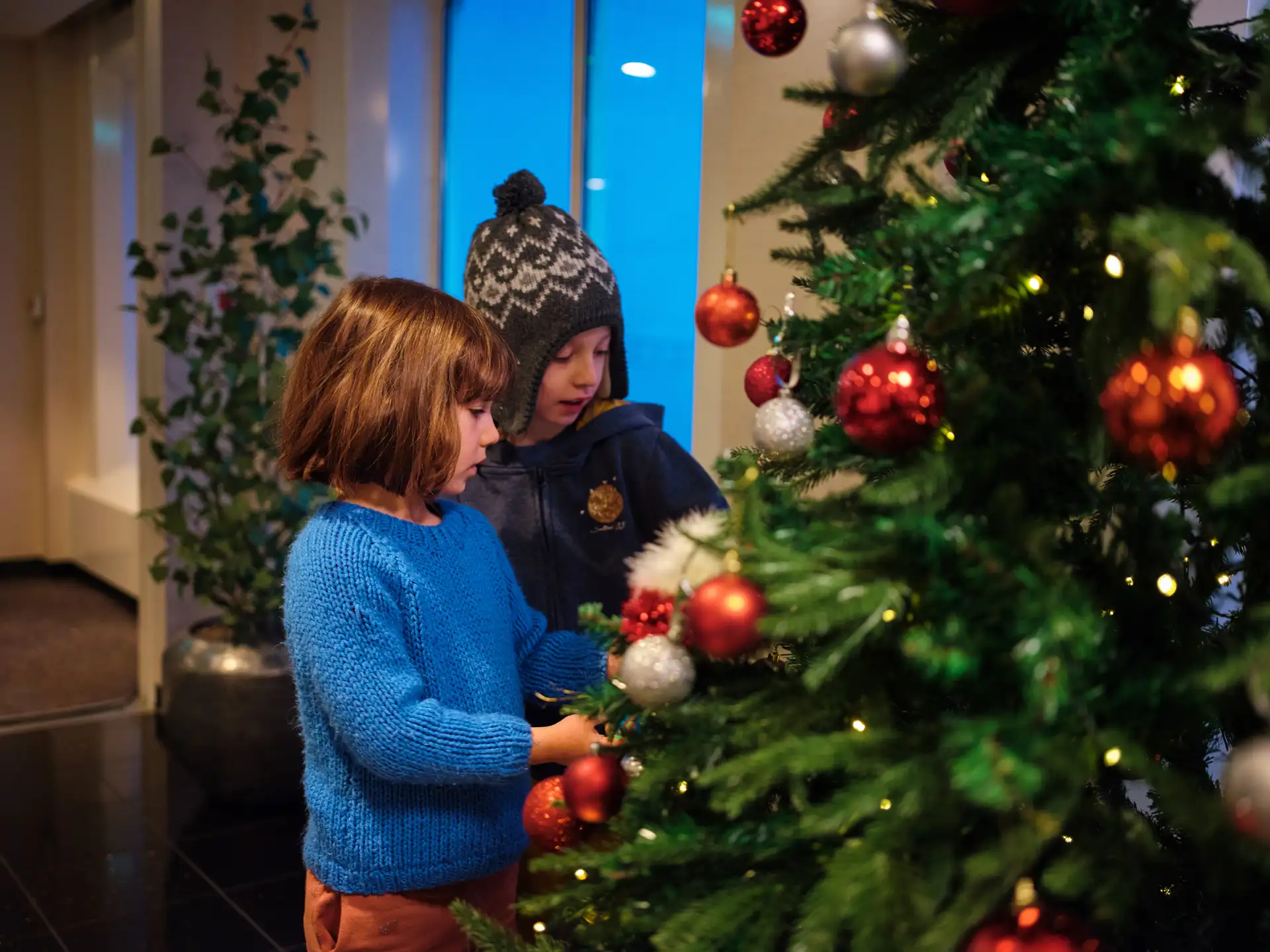
Experience Norway’s Christmas food traditions on a Hurtigruten cruise
There are plenty of opportunities to taste Norwegian Christmas food when you sail with us in December.
Throughout the month, Christmas cruises on our ships are a celebration of the Norwegian Christmas spirit, with festive decorations, delicious Christmas dishes, and those ever-changing views of Norway’s coast – beautiful all year round but never more so than when it’s blanketed in snow and twinkling lights.
More on Christmas in Norway

Christmas cruises with Hurtigruten
Set sail on a Christmas or New Year voyage with us along the Norwegian coast as it sparkles with seasonal magic.

The story behind Pepperkakebyen
To the rest of the world, Pepperkakebyen is the world’s largest gingerbread town. To the people of Bergen, Christmas wouldn’t be Christmas without it.

5 of the best Christmas markets along Norway’s coast
As winter deepens and the skies carry the promise of snow, Norway’s coast comes alive with Christmas markets.
